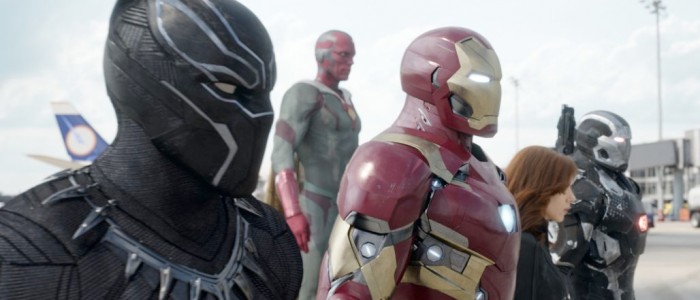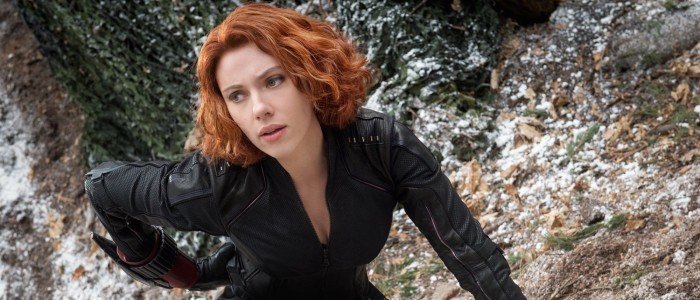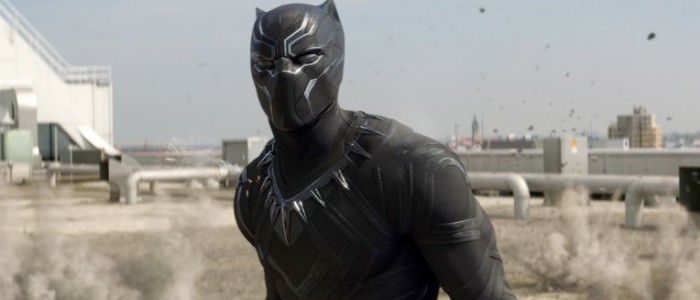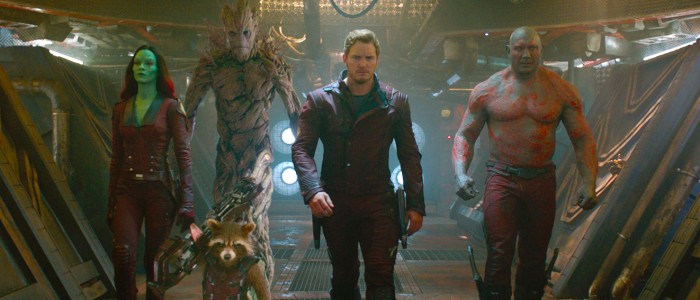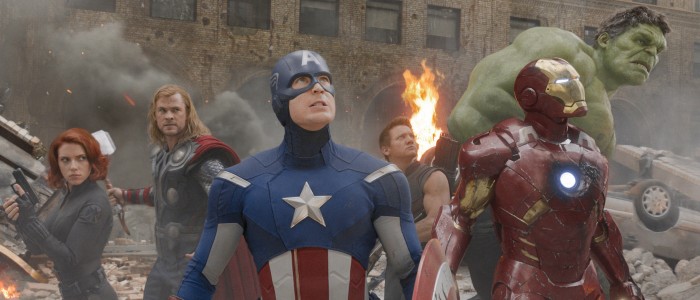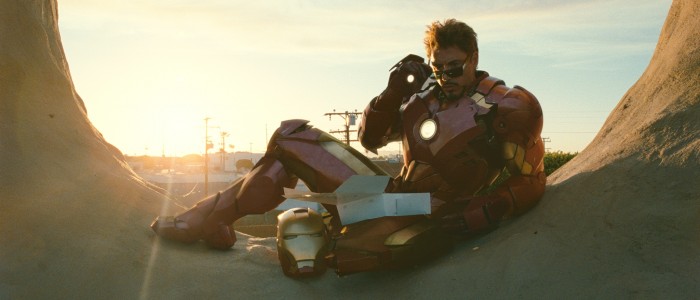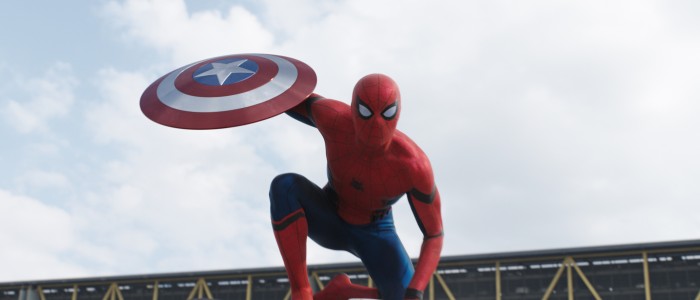Why Marvel Succeeds Where Other Blockbuster Franchises Have Failed
A few weeks ago, Peter looked into some of the reasons that so many big-budget sequels — which once seemed like sure-bet propositions — have floundered or outright flopped this summer. But there have been a few notable exceptions, including the one that kicked off this brutal season: Captain America: Civil War. While competing studios struggle to get their own shared universes off the ground, Marvel has just released the thirteenth entry in its cinematic universe, and it's showing no signs of slowing down. But how? Why? What makes Marvel so different? Why is this franchise succeeding when so many others have failed, and what other lessons should other would-be franchises take from it?
What Do We Want Out of Blockbuster Franchises?
In recent years, much digital ink has been spilled bemoaning Hollywood's increasing obsession with blockbuster franchise-building at the expense of individual, original films. And it is a troubling pattern. There's certainly something lost when studios are more willing to sink hundreds of millions of dollars into one safe, familiar product after another, rather than risk just a few million on something fresh and exciting just because it's not based on existing IP.
But blockbuster franchises have their unique advantages too, and nowhere is that clearer than with Marvel. Here's a cinematic universe that actually feels like a universe — vast and varied and full of weird corners just waiting to be discovered. When Marvel's firing on all cylinders, the interconnectedness of their films don't feel like limitations; they feel like possibilities. Knowing Ant-Man's running around San Francisco doesn't make it any harder to enjoy Thor's adventures in Asgard, it just makes us more excited to see what'll happen if and when they finally meet.
The Marvel franchise isn't just a more expensive, more spaced out television series with more expensive installments. Nor is it a live-action comic book. It's not just a series of films released under the same brand, with the same general tone (like Pixar or Disney Animation). It's something else entirely. It's cinematic storytelling on a grander scale.
Consistent Continuity
While all of Marvel's movies are connected, by virtue of belonging to the same universe and timeline, they're not all intertwined. It's quite possible to enjoy Guardians of the Galaxy without ever having seen The Avengers. Heck, you can understand Captain America: The Winter Soldier without ever watching another movie starring Captain America. But the reason Marvel feels like a cohesive continuity is because the individual installments do line up for anyone who cares to look. It's not that every detail has to be perfectly consistent. We're okay with certain actors having dual roles, for example, and we don't bat an eye at the nonsense spewed by Marvel's many scientist characters. But Marvel is pretty good about sticking to its own internal logic.
Contrast this to X-Men: Apocalypse, which is both entirely dependent on and completely dismissive of existing continuity. Even if you allow that X-Men: Days of Future Past reset the timeline post-1973, Apocalypse is full of details that don't add up, like the characters' ages. At the same time, Apocalypse depends on our recollection of previous films to make sense of the characters and storylines we see before us. Charles' lingering concern for Erik makes no sense unless you know they were best friends in First Class, and the Wolverine / Jean Grey scene really only exists as a nod to other installments. While X-Men has problems beyond its sloppy plotting, a more rigorous attention to detail would be a good way to start fixing that franchise.
Charismatic Characters
Speaking of X-Men: Apocalypse's paper-thin characters, that's another area where Marvel is running circles around most of the competition. The casting team, the actors, the directors, the screenwriters, the choreographers — everyone works together to craft characters that are not only likable, but so three-dimensional they almost feel like real people. We know what makes Captain America tick, both on a personal level and on a moral one; we know how he comes across to other people; we know what his fighting style and his sense of humor are like; we know what makes him happy or sad or amused or confused; and our understanding of him only deepens as he evolves with each successive installment. Ditto Iron Man, Thor, the Hulk, Black Widow, and so on. At this point, honestly, I know more about some of these fictional people than I do my own real-life friends. And that's key to Marvel's success: one of the major reasons we return to these movies again and again is that we like these characters and are eager to see what they're up to.
Marvel makes it all look so easy, but a glance at some other recent titles should be proof it's not. The Huntsman: Winter's War was built around the assumption that audiences were dying to see more of Eric and Ravenna. Universal learned the hard way that they were not. Charlize Theron's scenery-chewing makes Ravenna fun in small doses, but she's too flimsy a villain to hang an entire franchise on. And despite Chris Hemsworth's best efforts, Eric barely registers at all. (Universal apparently felt the same way, going out of their way to downplay his role in the marketing.) After two films it feels like we still don't know much about these characters, or why we're supposed to care about them. Lovable characters aren't the only reason to return to a franchise — I can't wait to watch Mission: Impossible 6, for example, even though I don't have particularly strong feelings about Ethan Hunt — but they sure do help.
Oh, and it bears mentioning here that A-list stars aren't required to create fan-favorite characters. Hemsworth was already a relatively well-known star when he was cast as the Huntsman, because he'd already starred Thor — but when Marvel originally hand-picked him for Thor, almost no one outside of Australia knew who he was.
Introducing New Heroes
Oh, and when franchises want to introduce new leading characters into the mix? It helps to give them some room to breathe. Civil War entrusted Black Panther with a major storyline and character arc that helped us get excited for his solo movie coming in 2018 and even gave Spider-Man (who's really pretty incidental to the plot) several beats to show off his personality and his moves. Marvel's not the only one who's figured this out – Creed and Star Wars: The Force Awakens both worked spectacularly well as "legacyquels" because they weren't afraid to turn their attention away from the icons who used to be the franchise leads (Rocky and Han / Luke / Leia, respectively) and spend some real time and energy on the fresh faces.
When a film is afraid to lean on its new characters, it shows. Independence Day: Resurgence introduced a trio of new heroes but spent so little care on them that by the end of the movie they still barely qualified as character types, let alone full-fledged characters. The film set up some potentially interesting dynamics between them, like the animosity between Jake and Dylan, but even these undercooked subplots are shoved aside to make room for Judd Hirsch driving a school bus or some other such nonsense. (Which, to be fair, was pretty cute.) Had Independence Day: Resurgence did the work to develop these characters — and then trusted them to carry large portions of the movie on their own – they might have been more convincing as the face of the next generation for this franchise. As it stands now, they're just a bunch of bland nobodies distracting from the older characters we actually care about.
Standalone Installments
As the end credits rolled on my (public) screening of Independence Day: Resurgence, a furious audience member began screaming at the screen: "Bullshit! What the fuck was that? We just watched a fucking preview!" And it was hard to disagree with her, honestly. The film's pacing is off (as Vox has explained quite well) — it's all set-up, and then all climax, and then it ends with a smirking scene that suggests this was all just set-up for another Independence Day movie. At no point does it feel like an actual, complete movie in and of itself. It's not impossible to end a film by setting up mysteries and storylines for next time, and still leave audiences satisfied. Star Wars: The Force Awakens pulled this off quite adeptly. The difference is that Star Wars made sure we still went home feeling like we'd been on a fulfilling emotional journey. We saw Rey evolve from an anonymous dreamer to a full-fledged hero of the Resistance.
The temptation to end with teasers and cliffhangers is understandable. These films want to leave you begging for more. But they really only work if they're coming at the end of a satisfying entry. When they don't, they leave audiences feeling cheated. Captain America: Civil War builds on a lot of the films that came before it, and sets up a lot of the films that came after it. But even if you've never seen a Marvel movie before and never plan to see a Marvel movie again, you walk out with a reasonably complete arc. It's no coincidence that the least-liked Marvel films (Iron Man 2 and Avengers: Age of Ultron) are the ones that seem more interested in laying groundwork than in telling a story. When Marvel does leave some threads dangling for next time, they're usually presented as minor details rather than urgent mysteries – Guardians of the Galaxy mentions Peter Quill's mysterious parentage in passing, for instance, but doesn't really dwell on it. Or they're saved for the end-credits stingers, so you've already gotten a complete movie before you get to them. To jump over to another Disney franchise, Star Wars: The Force Awakens pulls off a similar trick.
Despite a similar interest in serialization and continuity, film franchises are not television series, and individual sequels are not individual episodes. You can get away with a table-setting episode of Game of Thrones because fans know another episode is coming next week. It may be true that the Golden Age of Television is stealing some of cinema's cultural capital, but movies aren't going to beat television shows at their own game. TV is easier and cheaper to watch, and there are more viewing options than ever. If audiences are going out of their way to hit the theater, it's because they want to see a movie — not pay $15 for a supersized episode of a really slow-moving television series.
Practicing Patience
Because Marvel tries (and usually succeeds) at delivering complete individual movies, it can take them a while to build up to major overarching storylines. Iron Man may have set up the rest of the Marvel Cinematic Universe, but it still took us another four years and another five films to get to The Avengers. Captain America lost Bucky in The First Avenger and learned of his fate in The Winter Soldier, but didn't truly get to reunite with him until Civil War. And Captain America and Iron Man's personalities first clash in The Avengers, but their friendship continues developing through Avengers: Age of Ultron until their differences come to a head in Civil War. While Marvel famously maps out their storylines years in advance, they treat patience as a virtue and their films are better for it. Not only does their slow-burn approach give individual films room to breathe, they ensure that the payoffs, then they finally come, actually feel earned.
In their rush to set up the DC Cinematic Universe, Batman v Superman: Dawn of Justice looped in a convoluted backstory to explain why Batman hates Superman, dragged in Wonder Woman for no good reason, and then brought the climax to a screeching halt so we could watch a bunch of Justice League teasers featuring the Flash, Aquaman, and Cyborg. It introduced a "Knightmare" sequence that makes zero sense in the context of this movie, and had a character we haven't met yet appear through a wormhole to issue a warning that won't be relevant for another couple of films. I liked Batman v Superman quite a bit, and I'll gladly defend even some of its weirder choices. But there's no denying that great chunks of this movie seem to stem less from any organic development and more from a desire to propel this story forward so we can get to the next one.
It's not that DC necessarily needs to wait six films to get to Justice League, like Marvel did for The Avengers. Or that it's impossible to build a franchise around an ensemble — the original X-Men did just fine. But Batman v Superman probably would have been a better movie if DC hadn't been so desperate to set up Justice League that it was willing to push its characters around instead of letting them get there naturally.
What Marvel Gets Wrong
Marvel may be better than just about anyone else at building Marvel-style universes, but they're still not perfect. Occasionally we'll get a film that sags under the weight of all that franchise-building (hello, Avengers: Age of Ultron), or one that feels oddly distant from the others (looking at you, Thor: The Dark World). And as this universe gets deeper and richer, it runs the risk of becoming too complicated for newcomers or casual fans to follow. One solution that Marvel has employed is to keep introducing new characters like the Guardians, Ant-Man, or Doctor Strange. But it's going to be awfully difficult to keep 67 different characters straight by the time we get to Avengers: Infinity War, even for the most devoted Marvel Cinematic Universe fan.
More worrying is the dispiriting sameness that creeps into many of these different films. To be sure, Marvel's not the only one that likes to stick to the familiar blockbuster formula — every $100+ million blockbuster (and they're all $100+ million blockbusters these days) seems to end with a CG-heavy action sequence of bloodless mass destruction. But it's hard to care about another generic villain who wants to destroy the world when we see several such villains each year, and especially when you know damn well the studio needs this world to survive long enough to yield another dozen sequels. Marvel could do better about keeping the stakes personal, perhaps by branching out into smaller-scale stories, or experimenting further with genres.
What Other Franchises Should and Shouldn't Learn From Marvel
Marvel didn't invent the idea of film franchises, but they've done a lot to popularize cinematic universes. When the first Iron Man teased The Avengers, it felt like a pie-in-the-sky ambition. Following Marvel's rousing success, every studio has been scrambling to launch its own shared universe, including ones for the Ghostbusters, Scooby-Doo and his friends, the Transformers and the other Hasbro toys, the Universal monsters, and the books of Robert Ludlum. And no one bats an eye anymore when a studio snaps up release dates five years in advance for their flagship franchises.
But so far, no one has quite managed to replicate Marvel's level of success (although the Disney era of Star Wars seems to be off to a promising start). If other studios are mimicking Marvel's shared universe plan, they should also learn from Marvel's deep investment in its characters, its painstaking attention to continuity and world-building, and above all its patience. After all, elaborate franchise plans don't amount to much unless audiences actually want to show up, and that's where Marvel is really kicking ass.

